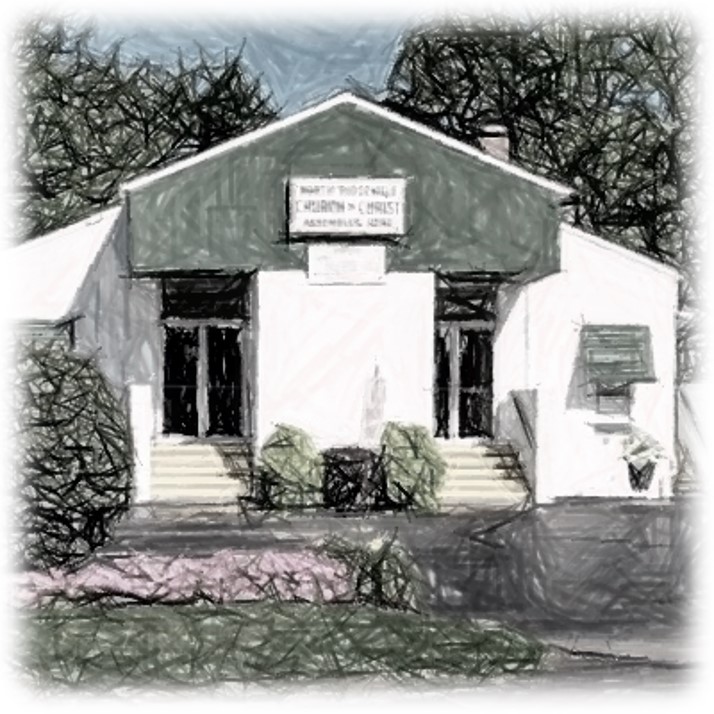Filthy Speech, Profanity, and Euphemisms (1)
Heath Rogers
Although the world may acknowledge the power of one's words, many people in the world think very little about how they actually speak. It seems that there was a time when filthy language was only used by unsavory characters and dirty stories were reserved for private conversations held by "mature" adults. Today, profanity and filthy language can be heard by all kinds of people in all kinds of places. Even people who call themselves "Christians" can be heard using foul language and telling dirty jokes.
The Bible takes a very different approach to the way we use our words. Jesus warned us to take our speech very seriously.
"But I say to you that for every idle word men may speak, they will give account of it in the day of judgment. For by your words you will be justified, and by your words you will be condemned" (Matt. 12:36-37).
Jesus says that we will give an account for every idle or careless word that proceeds from our mouth. He goes on to say that such words will determine whether we will stand justified or condemned before Him. Indeed, death and life are in the power of the tongue (Prov. 18:21).
The reason man's tongue is given such power is because it is an instrument of the heart (Matt. 12:33-35). The tongue is all too willing to reveal the true nature of man's heart, and bear forth its fruit - either good or bad. As such, the continued use of bad language betrays our false claim to have put off the old man of sin (Col. 3:8). It shows that, as opposed to being transformed into the image of Christ by the renewing of our minds, we are still conformed to the world (Rom. 12:2).
In addition to having an impact upon our eternal destiny, the Bible also tells us that the way we use our words will have a great impact upon our physical lives upon this earth:
"For 'He who would love life and see good days, let him refrain his tongue from evil, and his lips from speaking deceit'" (1 Pet. 3:10).
"The wicked is ensnared by the transgression of his lips..." (Prov. 12:13).
"A fool's lips enter into contention, and his mouth calls for blows. A fool's mouth is his destruction, and his lips are the snare of his soul" (Prov. 18:6-7).
"A man's stomach shall be satisfied from the fruit of his mouth; from the produce of his lips he shall be filled" (Prov. 18:20).
There are many ways that we can speak evil with our tongue. This article will focus upon our use of corrupt words, filthy talk, profanity, and euphemisms.
Corrupt Words
The Bible forbids the use of dirty words "Let no corrupt word proceed out of your mouth..." (Eph. 4:29). The word "corrupt" ("unwholesome" - NASV) means "rotten, worthless, not fit for use." These would be the swear words, the "four-letter-words," that are heard so often in our society today.
Not only are these types of words corrupt and rotten themselves, they have a corrupting influence upon those who hear them. A Christian should never, under any circumstances, be heard using these kinds of words.
Filthy Talk
This prohibition against using corrupt language is not limited to single words. "But fornication and all uncleanness or covetousness, let it not even be named among you, as is fitting for saints; neither filthiness, nor foolish talking, nor coarse jesting, which are not fitting, but rather giving of thanks" (Eph. 5:3-4). The telling of dirty jokes, use of sexual innuendos, retelling of sinful exploits seen on TV, etc., is unfitting conversation for a Christian. There are some things that are shameful for us to even be talking about (v. 12).
Profanity - Using God's Name In Vain
The word "profane" means "to show disrespect or contempt for sacred things, to put to a base or improper use." Although the word "profanity" is used by many people to refer to all "dirty" language, it really should be applied to the vain use of the name of God and His Son, Jesus Christ.
God has told us that He wants us to respect Him in the way we use His name. "You shall not take the name of the LORD your God in vain, for the LORD will not hold him guiltless who takes His name in vain" (Ex. 20:7). To use God's name in vain is to use it in a common, empty or careless way, without an attitude of sincere reverence or respect. This would also include the vain use of the exalted name of Jesus Christ (Phil. 2:9-11).
The Law of Moses called for the death penalty for one who blasphemed the name of God (Lev. 24:16). As a result, the children of Israel took this command so seriously that they would not speak the name of God for any reason, lest they use it in vain. Today, not only is the name of God used as a curse word, the names of God and His Son are used as common exclamations to express any and every emotion imaginable, and Christians are sometimes heard misusing God's name in this way.
To use the name of God in times of worship and religious teaching is appropriate. However, to say, "Oh my God," as a means of mindlessly expressing one's surprise, pleasure, or disgust is to use God's name in a common, non-sacred way. Such is a sin.
To Be Continued…
.
